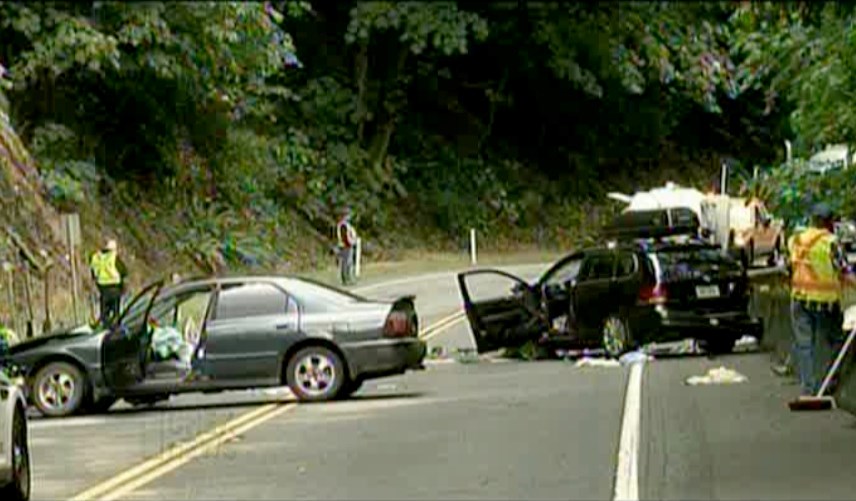The police officers and other emergency crews attending the three serious collisions on the Malahat over the weekend understand the impact subsequent road closures had on other motorists.
We understand how these delays affect people’s plans and local commerce, which is why we worked with other response agencies to get traffic flowing as quickly as possible. Each crash scene was unique, presenting its own challenges to first responders, investigators and road-maintenance crews, causing inevitable variations in closure times.
These three crashes involved critical injuries, and tragically, one involved the death of a 40-year-old man. We have a legal and ethical responsibility to thoroughly investigate each of these crashes, to ensure that causal factors are determined, fault is identified, charges are laid (if appropriate) and all evidence is accurately documented.
We treat these crash sites as any other potential crime scene, where possible negligent or criminal actions led to the life of an innocent victim being altered in the blink of an eye.
From the moment the first emergency responder arrives at a crash site, their primary focus is to ensure the safety of those at the scene and establish a safe work zone for arriving emergency crews.
Once a safe area has been established, we must identify injured victims and, if they need to be extricated from the wreckage, facilitate fire and rescue crews in performing this dangerous and time-consuming task. Medical crews work simultaneously to stabilize and provide primary care to the victims, before they are transported from the scene, which could take some time.
If there is a fatality, we take immediate steps to protect the dignity of the deceased, while notifying the B.C. Coroners Service, which will investigate the death, co-ordinate care of the victim’s remains and establish the identity of the deceased. Once these victim-focused tasks are done, we can begin the primary-scene examination, focused on determining what caused the crash.
In a critical-injury or fatal crash (which all three were this weekend) we will send a traffic analyst/reconstructionist officer to the scene. These officers are specially trained to gather expert evidence in criminal crash cases.
Their investigative work, focused on determining causal factors, involves extensive physical observation, evidence-gathering and detailed documentation that includes making a complex photographic record of the scene. It involves detailed measurements, examining the road surface (often tens or hundreds of metres in length) for tire markings and associated debris that will be plotted and recorded, observing and documenting the location and damage profile of the vehicles involved, and analyzing the location of victims relative to the vehicles.
These officers only get one chance at this work. Once they release the scene, the scene ceases to exist as it was found, meaning any overlooked evidence is forever altered and of diminished value.
In the event that a criminal charge is warranted, the standard of evidence required by our courts will be high. We expect to meet or exceed these high standards, thanks to the meticulous work of our analyst/reconstructionist officers and first responders who preserved the scene.
We understand the frustration some people feel when they are unexpectedly delayed. Wherever possible, we initiate detours to move them around a crash scene. Unfortunately, at the locations of these three weekend crashes, effective detours were not possible.
Regardless, our officers still had a difficult job to do, and a responsibility to do it right, the first time. In short order, a family will seek answers as to why their loved one is dead, while survivors and their families will seek answers about why this happened to them and who is responsible.
As a result of the work done at these crash scenes, we will be able to provide those answers to them.
The next time you find yourself stuck in crash-related traffic, and frustration toward the crews takes hold, please consider the type of work we are doing, the difficult circumstances we are working under and the reason we cannot rush things along. Your patience and support are truly appreciated.
Cpl. Darren Lagan is the spokesman for the RCMP on Vancouver Island. During his 15 years as a police officer, he has attended multiple serious-injury and fatal crashes and was a member of the Vancouver Island RCMP Criminal Crash Investigation Team for three years.



